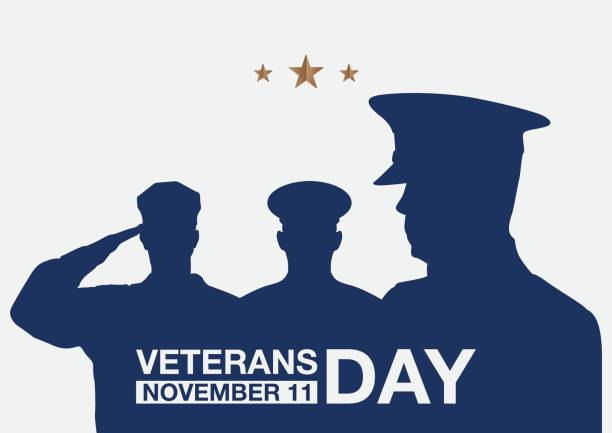Veterans Day 2024 invites us to honor the bravery, sacrifices, and steadfast service of those who have dedicated their lives to safeguarding our nation. This day provides an opportunity to reflect on the immense contributions veterans have made throughout history and the challenges they continue to face post-service. In this piece, we’ll explore the origins of Veterans Day, its significance today, the pressing challenges facing veterans, and actionable ways we can support them in transitioning to civilian life.
Origins of Veterans Day: A History of Service and Honor
Veterans Day, first commemorated as Armistice Day, marked the end of World War I on November 11, 1918. What began as a day to honor WWI veterans was expanded in 1954 to include veterans of all wars. Signed into law by President Eisenhower, Veterans Day now stands as a federal holiday dedicated to honoring veterans across generations who have selflessly served in the Armed Forces. This holiday not only recognizes their bravery but also serves as a reminder of the sacrifices made to secure peace and freedom.
The Political, Social, and Economic Significance of Veterans Day
Veterans Day holds powerful political and social implications. Politically, it reaffirms our nation’s commitment to supporting those who serve, as veterans’ welfare becomes a shared priority. Socially, the day highlights the community’s role in honoring veterans, bridging civilian-military divides, and acknowledging the diverse backgrounds of those who serve. The economic impact is equally significant: veterans enrich the workforce with specialized skills, yet face employment and healthcare challenges post-service. Thus, supporting veterans also strengthens the broader economy by creating a stable, resilient community.
Current Challenges Facing Veterans
Despite their contributions, veterans often face unique challenges:
- Mental Health: Many veterans experience PTSD, anxiety, and depression due to the trauma of active duty. Access to mental health resources remains critical but can be limited, particularly in rural areas.
- Employment: Veterans may find it difficult to translate military skills to civilian roles, leading to underemployment or unemployment. Additionally, veterans often face discrimination in the job market, underscoring the need for inclusive hiring practices.
- Healthcare: Access to comprehensive healthcare is a pressing issue. Although the VA provides resources, wait times and availability can impact veterans’ ability to receive timely care.
- Housing: Homelessness among veterans continues to be a national concern, especially for those experiencing mental health issues or economic hardship.
- Education: While educational benefits are available, navigating these programs and managing the transition to academia can be overwhelming, impacting veterans’ educational and career progress.
Special Events and Resources to Honor Veterans
This Veterans Day, honor veterans by engaging in meaningful activities, attending special events, and exploring resources that highlight their stories and voices. Here are some top recommendations:
- National Veterans Day Ceremony: Held at Arlington National Cemetery, this ceremony is a moving tribute to veterans’ sacrifices. The event, attended by dignitaries and veterans’ families, includes a wreath-laying at the Tomb of the Unknown Soldier.
- Veterans History Project: A Library of Congress initiative that collects and preserves veterans’ oral histories. These firsthand accounts provide deep insights into veterans’ experiences across generations.
- Books to Read: “The Things They Carried” by Tim O’Brien and “Once a Warrior” by Jake Wood offer gripping insights into the emotional journeys of those in service. These books provide perspectives that help bridge the understanding between veterans and civilians.
- Documentaries: Films like “Restrepo” and “They Shall Not Grow Old” offer a visual exploration of veterans’ experiences, shedding light on the realities of active duty and the challenges of reentry into civilian life.
- Veterans Day Parades: Parades across cities like New York, San Diego, and Houston honor veterans and bring communities together to celebrate their service.
How to Support Veterans in Overcoming Challenges Post-Service
Here are practical ways we can all make a difference in veterans’ lives:
- Support Veteran-Focused Organizations: Organizations such as Wounded Warrior Project, Veterans of Foreign Wars (VFW), and American Legion provide critical support through resources, mentorship, and community events.
- Hire a Veteran: Companies that actively hire veterans not only gain valuable team members but also contribute to a veteran’s successful transition to civilian life. Participating in veteran job fairs or partnering with veteran employment agencies can make a positive impact.
- Raise Awareness for Mental Health: Joining or donating to mental health initiatives like Give an Hour and Warrior Care Network helps reduce stigma and expand resources available to veterans.
- Volunteer: Many veteran organizations are in constant need of volunteers. Whether it’s helping to build homes for homeless veterans through Habitat for Humanity or participating in mentorship programs, your time can make a meaningful difference.
- Advocate for Policy Change: Legislative support can be powerful. By advocating for policies that address veterans’ needs, such as improved healthcare access and mental health support, we can contribute to meaningful, systemic change.
Honoring Veterans Beyond Veterans Day
Honoring veterans’ sacrifices and contributions shouldn’t be limited to one day a year. By engaging with veterans’ stories, supporting their needs, and participating in initiatives that strengthen their well-being, we create a lasting impact that resonates far beyond Veterans Day. This November, let’s commit to celebrating veterans by understanding their unique journeys and taking action to help them thrive in the civilian world they fought to protect.


